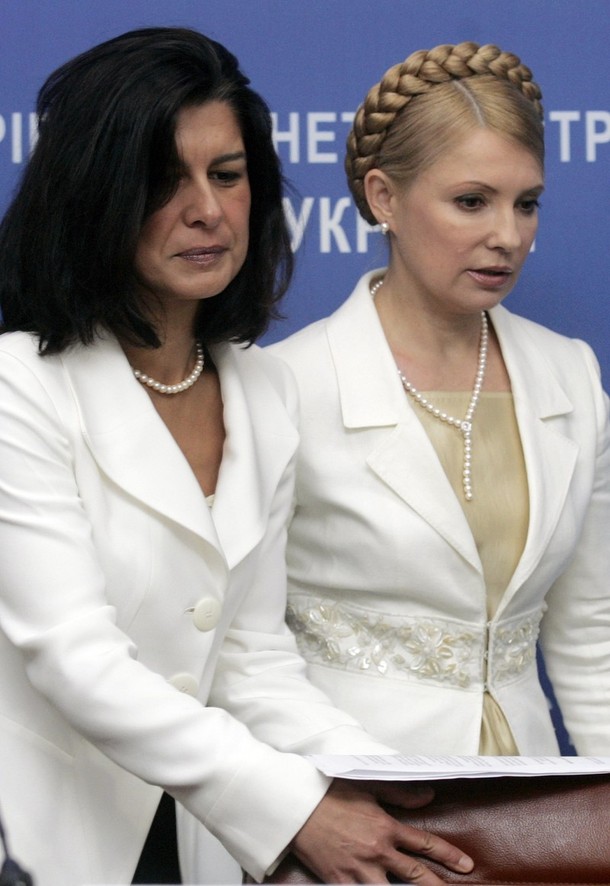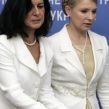
International Assistance Granted to Support Ukrainian Economy
Publication: Eurasia Daily Monitor Volume: 6 Issue: 150
By:

Several recent international decisions relating to Ukraine have shown that attitudes toward the local economy have improved following signs of stabilization. The International Monetary Fund (IMF) approved the allocation of another loan tranche, a rating agency expressed optimism on the sovereign ratings, and the European Commission (E.C.) – the executive arm of the European Union – organized a loan to help Naftohaz Ukrainy, the state-owned oil and gas behemoth, pay for Russian gas. This should help Ukraine to prepare for a possible second wave of the financial crisis during the fall when the country faces payments on several large foreign debts. Moreover, pressure on the national currency is mounting, which will present further challenges for the Ukrainian economy.
Initial uncertainty over the IMF’s loan decision triggered the hryvnia’s plunge against the main currencies in late July, showing the extent to which the weak national economy depends on foreign financing. Although the hryvnia’s official rate dropped by only 1 percent in July, the street rate plunged by as much as 4 percent to over eight hryvnias per dollar. The central bank suggested that this had resulted from the payments of Ukrainian banks and companies on foreign loans being increased in July raising the demand for foreign currency -weakening the hryvnia. The news about the IMF’s approval of the $3.3 billion third tranche of the $16.4 billion standby loan to Ukraine, which came on July 29, stabilized the hryvnia almost immediately (www.bank.gov.ua, August 4).
This tranche allocation was smooth compared to the discussions between the IMF and the government of Prime Minister Yulia Tymoshenko, which preceded the allocation of the second $2.8 billion tranche in May. The IMF apparently trusts that Tymoshenko will follow its recommendations to proceed with reform and abstain from economic populism despite admonitions from her arch-rival President Viktor Yushchenko. The IMF in its press release praised the recent increase in the domestic price of gas by 20 percent aimed to bring it in line with international prices in order to reduce the budget deficit of Naftohaz. The IMF also noted that the central bank demonstrated its readiness to tighten fiscal policies to withstand inflation and exchange rate pressures (www.imf.org, July 28).
Following the IMF’s positive decision, Standard and Poor (S&P), the international rating agency, revised its outlook on Ukraine’s debt obligations from "negative" to "positive." S&P said this reflected the recent progress in structural reform in the budget and financial sectors, which allowed Ukraine to qualify for the IMF loan. S&P also praised the "strong and coordinated banking measures" which helped to improve depositor confidence as the outflow of private deposits from banks stopped by the summer. Similarly, S&P noted that political and economic risks remain ahead of the January 2010 presidential election, which prevented it from upgrading Ukraine’s weak ratings, rather than just the outlook on the country’s economy (www.standardandpoors.com, July 31).
Finally, Tymoshenko’s efforts to borrow money to help the debt-ridden Naftohaz pay for Russian gas have proven successful. The E.C. declared on July 31 that international financial institutions were ready to lend a total of $1.7 billion to Naftohaz: $750 million should come from the European Bank for Reconstruction and Development, $450 million from the European Investment Bank and $500 million from the World Bank. The E.C. said that the loans should allow Ukraine to ensure the uninterrupted transit of Russian gas to Europe (Kommersant-Ukraine, August 3). Ukraine asked Russia last winter for a $5 billion loan for Naftohaz, but Prime Minister Vladimir Putin following the March Ukraine-E.C. accords on gas sector reform, with which he was unhappy, advised that Ukraine should turn to the E.C. Tymoshenko did so, but she asked for less ($4.2 billion). The E.C., however, decided that $1.7 billion would suffice to ensure that Naftohaz buys enough gas for storage in the winter.
This does not solve all of Naftohaz’s problems as it will have to redeem its $500 million Eurobond on September 30. Here the IMF came to rescue again: the entire $3.3 billion third tranche can be used by the Ukrainian government to service foreign debts, including Naftohaz’s Eurobond as well as payments for Russian gas deliveries, the IMF said (www.imf.org, July 29).
Support from international financial bodies is very important for Ukraine ahead of the peak of payments on its foreign debts this year, which is expected in August and September. In particular, Ukraine will have to redeem sovereign Eurobonds worth $500 million and $250 million worth of Eurobonds of the state-controlled Ukreximbank in August, and sovereign Eurobonds worth 768 million Swiss francs ($720 million) in addition to Naftohaz’s Eurobonds in September (Zerkalo Nedeli, August 1). Another issue to note is that Ukraine should boost Russian gas purchases later in the year to compensate for low purchases in early 2009 when gas was more expensive, so payments to Gazprom are also set to grow possibly up to $1 billion per month.




